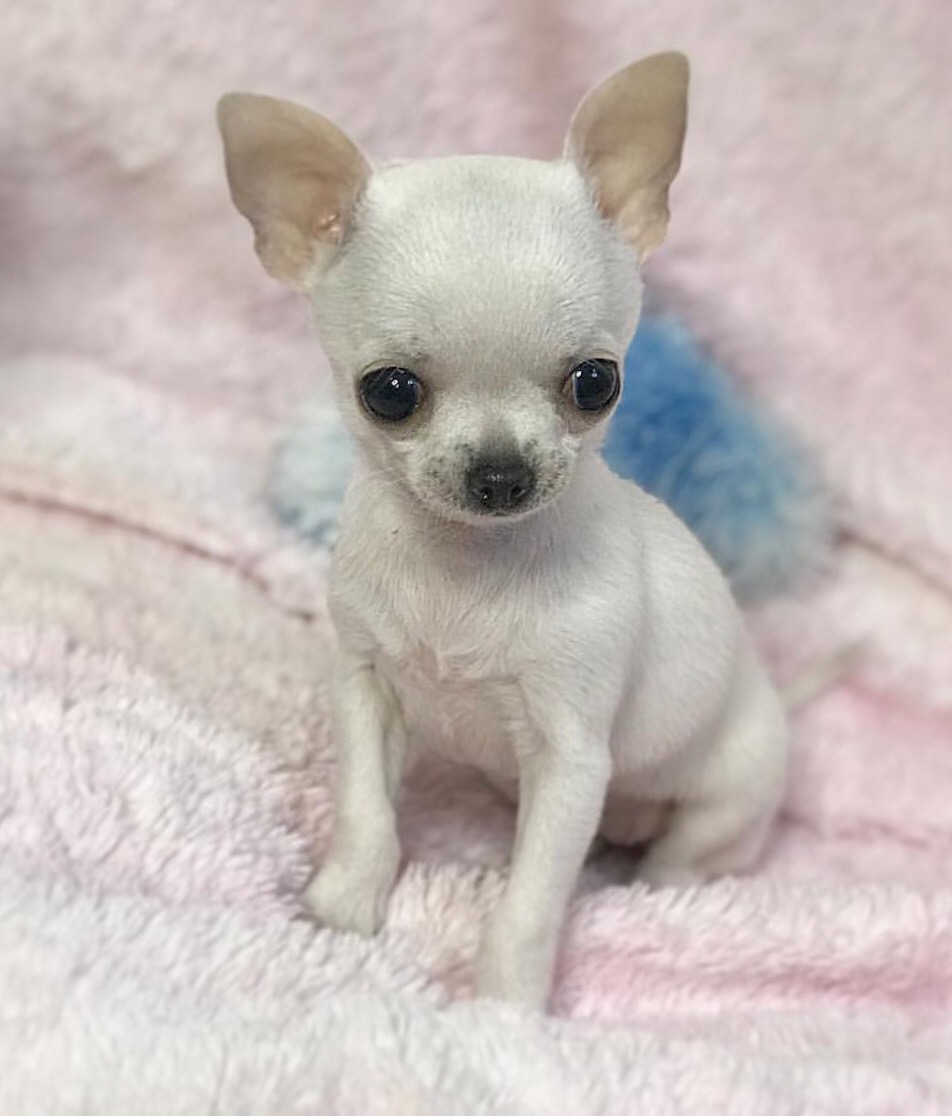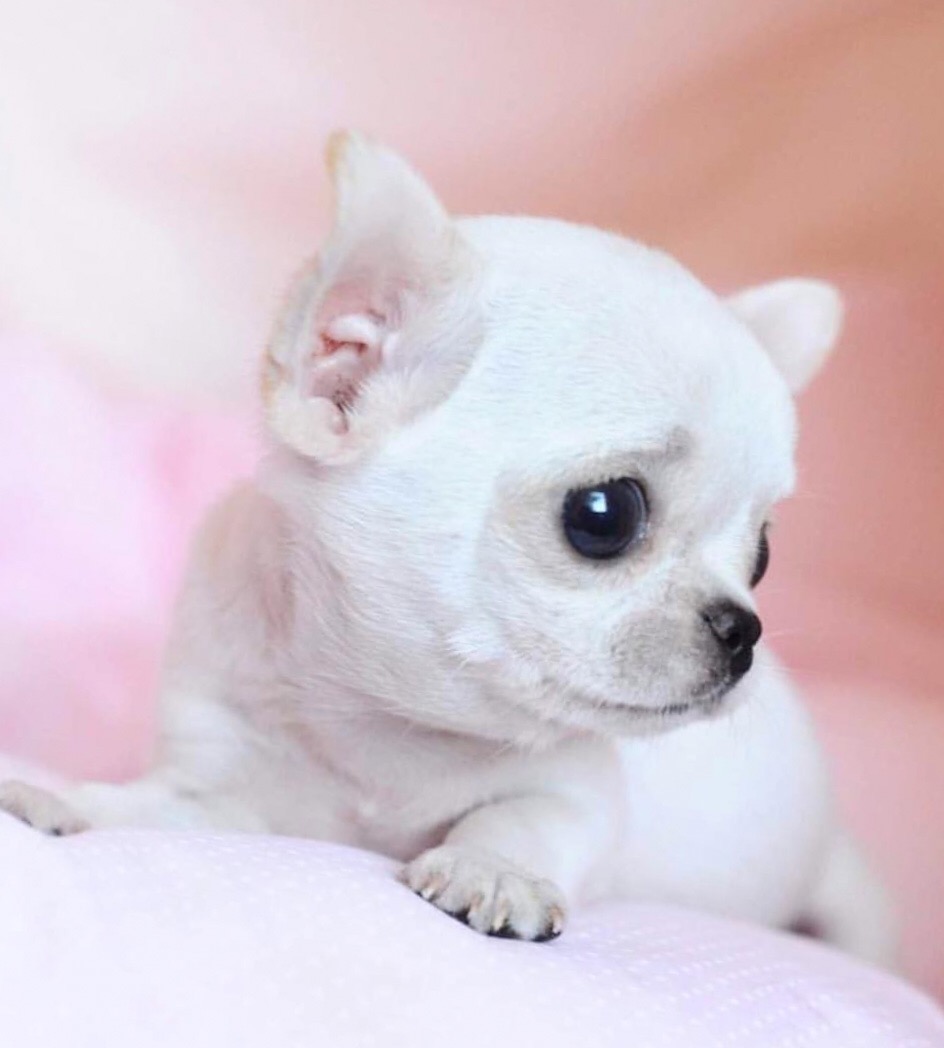Teacup Chiwawa puppies have captured the hearts of dog lovers worldwide with their miniature size and charming personalities. These tiny dogs, often considered a variation of the Chihuahua breed, are perfect for those seeking a loyal and affectionate companion. However, owning a Teacup Chiwawa comes with unique responsibilities and considerations. From understanding their delicate nature to providing the right care, this guide will walk you through everything you need to know about these pint-sized pups. Whether you're a first-time owner or a seasoned dog enthusiast, this article is your go-to resource for all things Teacup Chiwawa.
Despite their small size, Teacup Chiwawas are known for their big personalities. They are energetic, curious, and incredibly loving, making them ideal for families and individuals alike. However, their delicate physique requires special attention and care, which is why it's essential to understand their needs before bringing one home. From grooming to nutrition, we'll delve into the specifics of what makes these dogs so special and how to ensure they thrive in your care.
While Teacup Chiwawas are undeniably adorable, they also come with specific health concerns and temperamental traits that potential owners should be aware of. Their tiny size makes them more susceptible to injuries, and their dietary needs differ from larger breeds. By educating yourself on their unique requirements, you can provide the best possible environment for your new furry friend. Let's explore everything you need to know about Teacup Chiwawas, from their origins to their care routines.
Read also:Exploring The Enigma Who Is Brigitte Bardots Son
What Is a Teacup Chiwawa?
A Teacup Chiwawa is a smaller variation of the Chihuahua breed, typically weighing less than four pounds. While they share the same lively and affectionate personality as standard Chihuahuas, their miniature size sets them apart. These dogs are not officially recognized as a separate breed by major kennel clubs, but their popularity continues to grow among dog lovers. Their small stature makes them ideal for apartment living, but it also means they require extra care and attention.
Where Did the Teacup Chiwawa Originate?
The origins of the Teacup Chiwawa can be traced back to the Chihuahua breed, which is believed to have originated in Mexico. Over time, breeders focused on producing smaller Chihuahuas, eventually leading to the development of the Teacup Chiwawa. These dogs became particularly popular in the United States and Europe due to their cute appearance and friendly demeanor. Understanding their history helps shed light on their temperament and care requirements.
Why Are Teacup Chiwawas So Popular?
Teacup Chiwawas have gained immense popularity due to their compact size and endearing personalities. They are often seen as the perfect lap dog, providing companionship and affection to their owners. Additionally, their unique appearance, with large ears and expressive eyes, adds to their charm. However, it's important to note that their popularity has also led to unethical breeding practices, which potential owners should be cautious of when searching for a reputable breeder.
How to Care for Your Teacup Chiwawa?
Caring for a Teacup Chiwawa involves understanding their specific needs, from nutrition to exercise. Their small size means they require a balanced diet that supports their energy levels without causing obesity. Regular vet check-ups are also crucial to monitor their health and address any potential issues early on. Below is a comprehensive guide to help you provide the best care for your Teacup Chiwawa.
What Should You Feed Your Teacup Chiwawa?
Nutrition plays a vital role in the health and well-being of your Teacup Chiwawa. High-quality dog food specifically formulated for small breeds is recommended to ensure they receive the necessary nutrients. Avoid overfeeding, as these dogs can easily gain weight, which can lead to health problems. Additionally, fresh water should always be available to keep them hydrated. Here’s a list of foods to avoid:
- Chocolate
- Grapes
- Raisins
- Onions
How Often Should You Groom Your Teacup Chiwawa?
Grooming is an essential part of caring for your Teacup Chiwawa. Regular brushing helps keep their coat healthy and reduces shedding. Depending on their coat type, you may need to brush them daily or a few times a week. Bathing should be done occasionally to avoid stripping their skin of natural oils. Additionally, check their ears, teeth, and nails regularly to ensure they are clean and trimmed.
Read also:Unveiling The Success Story Behind Ryan Toys Net Worth A Deep Dive Into His Journey
What Are Common Health Issues in Teacup Chiwawas?
Teacup Chiwawas are prone to certain health issues due to their small size. Hypoglycemia, or low blood sugar, is a common concern, especially in puppies. Ensuring they eat regular meals can help prevent this condition. Other potential health issues include dental problems, patellar luxation, and heart conditions. Regular vet visits and a healthy lifestyle can help mitigate these risks.
What Are the Temperament Traits of a Teacup Chiwawa?
Teacup Chiwawas are known for their lively and affectionate nature. They are often described as loyal, brave, and protective of their owners. Despite their small size, they have a big personality and are not afraid to stand up for themselves. However, their protective instincts can sometimes lead to aggression toward strangers or other animals if not properly trained. Socialization and positive reinforcement training are key to shaping their behavior.
How Can You Train Your Teacup Chiwawa?
Training a Teacup Chiwawa requires patience and consistency. Positive reinforcement techniques, such as rewards and praise, work best for these intelligent dogs. Start with basic commands like "sit," "stay," and "come," and gradually introduce more complex tasks. Crate training can also be beneficial for housebreaking and providing a safe space for your dog. Remember, Teacup Chiwawas may be small, but they have a strong will, so patience is key.
How Much Exercise Does a Teacup Chiwawa Need?
While Teacup Chiwawas are small, they still require regular exercise to maintain a healthy weight and stay active. Short walks and playtime indoors are sufficient to meet their exercise needs. However, be cautious of overexertion, as their delicate bodies can easily become tired. Always supervise outdoor activities to ensure their safety.
Where Can You Find a Reputable Teacup Chiwawa Breeder?
When looking for a Teacup Chiwawa, it's crucial to find a reputable breeder who prioritizes the health and well-being of their dogs. Research breeders in your area and ask for references or reviews from previous buyers. A responsible breeder will provide health clearances for the parents and be transparent about their breeding practices. Avoid purchasing from puppy mills or unethical breeders, as this can lead to health and behavioral issues in your dog.
Can You Adopt a Teacup Chiwawa?
Adopting a Teacup Chiwawa is a wonderful way to give a dog in need a loving home. Many rescue organizations specialize in small breeds and may have Teacup Chiwawas available for adoption. When adopting, be prepared to answer questions about your lifestyle and home environment to ensure the dog is a good fit for your family. Adoption can be a rewarding experience, providing both you and your new pet with companionship and joy.
How Much Does a Teacup Chiwawa Cost?
The cost of a Teacup Chiwawa can vary depending on factors such as the breeder, location, and bloodline. On average, you can expect to pay between $800 and $2,000 for a Teacup Chiwawa from a reputable breeder. Adoption fees are typically lower, ranging from $100 to $300, but may include additional costs for vaccinations and spaying/neutering. Remember, the initial cost is just the beginning, as ongoing expenses for food, grooming, and veterinary care should also be considered.
Conclusion: Is a Teacup Chiwawa Right for You?
Owning a Teacup Chiwawa can be a rewarding experience, but it requires dedication and responsibility. These small dogs bring immense joy to their owners with their loving nature and playful personalities. However, their delicate size and specific needs mean they are not suitable for everyone. By understanding their care requirements and choosing a reputable breeder or rescue organization, you can ensure a happy and healthy life for your Teacup Chiwawa.
Table of Contents
- What Is a Teacup Chiwawa?
- Where Did the Teacup Chiwawa Originate?
- Why Are Teacup Chiwawas So Popular?
- How to Care for Your Teacup Chiwawa?
- What Should You Feed Your Teacup Chiwawa?
- How Often Should You Groom Your Teacup Chiwawa?
- What Are Common Health Issues in Teacup Chiwawas?
- What Are the Temperament Traits of a Teacup Chiwawa?
- How Can You Train Your Teacup Chiwawa?
- Where Can You Find a Reputable Teacup Chiwawa Breeder?

